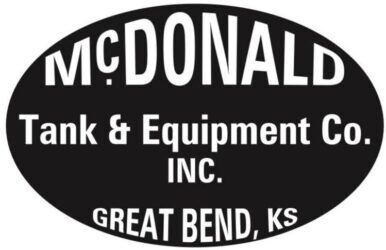Tank insulation thickness plays a crucial role in industrial operations involving tanks, whether for storage or processing. Ensuring the correct insulation thickness is essential for optimal performance. This guide delves into why insulation thickness matters, the factors influencing it, its advantages, and debunks common myths, emphasizing the importance of consulting experts like McDonald Tank for precision insulation solutions.
Why is Tank Insulation Thickness So Crucial?
Tanks are integral to various industrial processes, and proper insulation is vital for their optimal functioning. However, it’s not just about insulating the tanks; the thickness of the insulation is equally important. Achieving the right insulation thickness is a delicate balancing act. If it’s too thin, it compromises thermal performance, leading to temperature fluctuations that can impact the quality and safety of the tank’s contents. Conversely, overly thick insulation can be an unnecessary expenditure in terms of material cost and space.
Factors that Influence the Ideal Insulation Thickness
Determining the perfect insulation thickness involves considering several influencing factors. Firstly, the nature of the tank’s contents is paramount. Whether you’re storing a liquid requiring high-temperature maintenance or cold storage, each scenario demands different insulation considerations.
The external environment also plays a significant role. Tanks in colder climates have different insulation needs than those in tropical or temperate zones. Additionally, the material of the tank is crucial; different materials have varying heat transfer rates, affecting insulation decisions. For example, stainless steel conducts heat differently than plastic or fiberglass, leading to distinct insulation requirements.
Advantages of Pinpointing the Correct Tank Insulation Thickness
Identifying the right insulation thickness offers numerous tangible benefits. Foremost is energy efficiency. Proper insulation minimizes energy loss from the tank, resulting in significant long-term savings on energy bills.
Furthermore, maintaining a consistent internal temperature is essential for preserving the quality of the tank’s contents, whether they are liquids, gases, or other substances. Correct insulation thickness also reduces condensation, preventing potential corrosion and enhancing the tank’s overall lifespan.
Debunking Common Myths About Tank Insulation
The world of tank insulation is often clouded by misconceptions. One common myth is that “thicker is always better.” While a thicker layer of insulation can provide excellent protection, it’s not universally the correct answer. Excessive thickness can sometimes be counterproductive, wasting resources and space without significantly improving performance.
Another misconception is that all tanks, regardless of type, size, or location, need the same insulation. This is far from the truth. Each tank has unique requirements based on its purpose, material, and location. Additionally, some believe that insulation is only vital in colder regions. However, even in warmer climates, insulation is essential to prevent overheating and maintain the consistency of the tank’s contents.
McDonald Tank: Your Partner in Precision Insulation Solutions
McDonald Tank offers a scientific and customized approach to tank insulation. Recognizing that no two tanks are identical, their expertise caters to the distinct needs of each tank. Their experts thoroughly analyze the specific requirements, including size, usage, and location, to determine the best insulation thickness.
McDonald Tank’s involvement goes beyond recommendations. From initial consultation to final installation, their team is committed to ensuring that tanks are perfectly insulated for peak performance, long-lasting durability, and unparalleled energy efficiency.
Key Takeaways for Discerning Tank Owners
In the intricate landscape of tank insulation, knowledge is half the battle. Understanding the tank’s purpose is crucial, as it influences the type of insulation and the ideal thickness. Environmental considerations are equally important, as insulation needs vary depending on the tank’s location.
Lastly, seeking expert consultation in the niche field of tank insulation is advisable. Consulting with seasoned experts like those at McDonald Tank provides clarity and ensures optimal decisions for tank longevity and efficiency.
